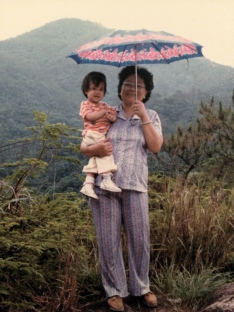
“This must be a simply enormous wardrobe!” thought Lucy, going still further in and pushing the soft folds of the coats aside to make room for her. Then she noticed that there was something crunching under her feet. “I wonder is that more mothballs?” she thought, stopping down to feel it with her hand. But instead of feeling the hard, smooth wood of the floor of the wardrobe, she felt something soft and powdery and extremely cold. “This is very queer,” she said, and went on a step or two further.
C.S. Lewis, The Lion, the Witch, and the Wardrobe
I can be faulted for having a vivid imagination. As a child, I would have no problems reading stories about magical worlds late into the night. Dragons? Fairies? UNICORNS?!! These other-worldly creatures beckoned me to venture into a place that was incomparable to the usual trek to school with standard workbooks and bullies. That place was in my mind and yet, it wasn’t. The words I read painted images that were beyond anything I could normally experience as an Asian girl growing up in a small prairie city. Those words took me into worlds where misfits could be heroes and children could be powerful.
Of course those worlds also included evil and sinister motives. But good seemed to always triumph after a long perilous journey. These stories tended to involve a group of characters that were unlikely to cooperate if not for a common purpose or enemy. And because these characters were a hodgepodge of personalities, I could be one of them on this adventure. These stories took me in because I could see it, I could picture it in my mind as though it was happening to me.
Remarkably, it all began with a picture, according to C.S. Lewis, author of one of the most beloved children’s stories in western literature. Not a painted picture, but an imagined one of a faun bearing umbrellas and parcels in a snowy woods. That image launched an exploration that resulted in a series of books, which in turn invited countless readers – including yours truly – into the world of Narnia. This imagined story was so powerful that even after all these years Narnia has never left me. Last spring I placed my palm at the back of an old wardrobe in The Kilns, Lewis Close. I pushed – half expecting the slates of wood to give way to a forest. My friend and I laughed with mirth and a tinge of disappointment. Who wouldn’t want Narnia to be real?
That’s the drawback of imagination. Reality is never as beautiful or fulfilling as we imagine it could be. Reality is chaos and random, or mundane and pedestrian. Reality punches one in the gut from time to time, and leaves you gasping. Reality can drain you of energy with its demands and responsibilities. In these moments, my imagination can easily slip into fantasy when I want control or an escape. Fantasy is seductive and sweet, but leaves one feeling hungry and perhaps even angry when the illusion fades.
Without my imagination though, my faith and capacity for growth would have died long ago. Certainty would have ruled my thinking and would have told me that this is it. Life is just a series of happenstances that mean nothing and will never mean anything. Close the door and move on; run with the rest of the children.
Imagination makes me pause and consider another interpretation. With my imagination I can see reality being shaped or fitted into the arch of a larger story yet to be completed. Imagination is the ability to visualize a different view of things. Or perhaps it’s not ability at all but a divine grace because who can see beyond this world without the aide of something or someone outside of us? Perhaps this is what is meant by the “Christian imagination.” Christian imagination is hope-filled and generative. It’s looking beyond what the natural senses say are the boundaries to real life and believing that there is more. There is more grace, more joy, more love. Faith is being sure of what we hope for. It is being certain of what we do not see. I have found that prayer is the means to access that divine imaging. Prayer is that doorway where we are invited to step further into God’s reality that is far grander than our own.
Therefore, I’ll always keep reading and keep imagining the possibilities. Maybe there is a purpose. Maybe there is a hopeful future. Maybe there is a goodness that will win in the end. And maybe, should I ever come across another wardrobe, I’ll take a step in.
This was a contribution to Asian American Women on Leadership, a gathering of Asian American Women for leadership renewal and development.
 I did not know my maternal grandmother well. Come to think of it, I did not know any of my grandparents well. Both my grandfathers died when I was young, and language barriers kept me from conversing with my paternal grandmother, even though she was present throughout most of my life.
I did not know my maternal grandmother well. Come to think of it, I did not know any of my grandparents well. Both my grandfathers died when I was young, and language barriers kept me from conversing with my paternal grandmother, even though she was present throughout most of my life.